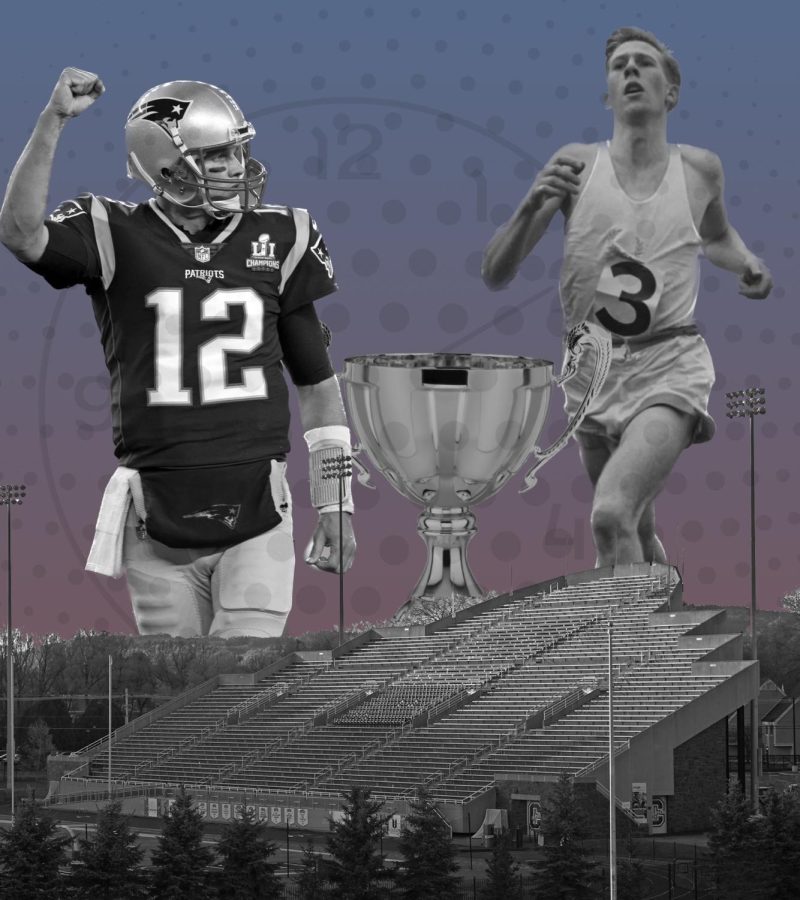The Immortal Athlete
I was never interested in team sports, such as football and baseball, that are an integral part of American culture. I didn’t play them. I didn’t watch them. I found the Super Bowl boring. I was perplexed by how dedicated my classmates were to their March Madness brackets, and how people define themselves through sports teams. They referred to their favorite teams as “their” team, using a personal pronoun, showing their allegiance, connection and feeling a sense of ownership and belonging.
In coming to Colgate University, I found an interest in not sports themselves but sports culture. The unique experience of attending a small liberal arts school with Division I athletics allows for the student population to be heavily populated with athletes from a plethora of different sports. I began to see the dedication of not only the athletes to their craft, but also the community that rallies behind them. On both a collegiate and professional level, sports have a unique way of uniting and dividing us. They offer a meditative moment for both players and observers. They are a moment of reprieve in a busy and complex world. Life becomes simple: the rules are defined and the end result provides a sense of instant gratification. Two teams, one end goal, one winner, one loser.
I understood why people felt allegiance to a particular professional sports team. This team and its players gives you something to believe in and a community to belong to. These athletes are your heroes. When they win, you celebrate with them, and when you lose you feel a collective pain.
What is it like to be an athlete placed on this pedestal? What does it mean to have people chanting your name, to be worshipped, to test the physical limits of the human body?
In essence, what does it mean to achieve immortality on Earth?
In Ancient Greece, athletic achievement was viewed as a reflection of core societal values. Athletes embodied kalokagathia, a Greek term emphasizing the connection between the mind and physical body evidenced in a state of physical beauty and orderly conduct. Like the Greek gods and warriors were immortalized in songs, so too are athletes today immortalized in our rhetoric and stories. Athletic feats allow us to believe for a moment that people can stay young and healthy forever. We immortalize athletes in their physical prime, bursting with vitality. In our minds, they will always be superhuman.
Athletics are a way of celebrating the human body and all it can achieve. We can test the boundaries of the physical body. We can compete against each other to see who is the fastest, the strongest, the toughest. Watching these athletes perform superhuman feats allows us to see our own physical potential and avoid our own mortality. We believe that we, like these athletes, can stay young and healthy forever. Athletes today are trying to fight the biological clock, to preserve their bodies in their prime and hold onto their sense of immortality by playing for longer. Look at Tom Brady, still playing a physically demanding sport at 45 years old. If he can do this, if he can stay youthful and fit to play, perhaps we can as well. This push of athletes to stay in sports allows spectators to avoid their own mortality. They can believe in a world where the decay of the body and mind does not exist. Like the Ancient Greeks, athletes and athletics today continue to serve as a reflection of societal values and fears. People can avoid the fear of death and the unknown by living vicariously through those in a perfect state of kalokagathia.
Athletes themselves aspire to preserve this illusion of immortality. Many athletes are concerned with the post-self: the history they leave behind and how they will be remembered in the future. Sports are a way for athletes to leave their mark on the world, to be immortalized in their peak physicality and achievement. When Roger Bannister finished the incredible feat of breaking the four-minute mile, he said, “I felt that the moment of a lifetime had come. There was no pain, only a great unity of movement and aim. The world seemed to stand still, or did not exist […] I felt at that moment that it was my chance to do one thing supremely well.” Bannister describes this moment with a sense of transcending the physical form, feeling connected beyond the physical act he was doing and referencing the spirituality of the moment. He knew this was the pinnacle of his career, the defining moment of his post-self in which he will be immortalized.
This immortalization extends beyond the athlete. Their family and friends are immortalized with them by virtue of being intertwined in their lives. Some athletes feel the pressure of biological immortality. They feel a need to preserve the memory of their bloodline, to honor their ancestors and parents through their physical achievements. Biological immortality ensures this sacrifice of the body is purposeful. Athletes want to ensure that not only themselves but also the people they love are immortalized.
The general public, strangers to the athletes competing, still finds immortality by living through the athletes’ performances. Writer Fred Exley reflected on his connection with football and its players as “It smacked of something old, something traditional, something unclouded by legerdemain and subterfuge. It had that kind of power over me, drawing me back with the force of something known, scarcely remembered, elusive as integrity — perhaps it was no more than the force of a forgotten childhood. Whatever it was, I gave myself up to the Giants utterly. The recompense I gained was the feeling of being alive.”
Exley was not an athlete himself. Like many Americans enchanted by sports culture, he found his immortality by defining himself with a team and living vicariously through the athletes performing. Supporting these immortal athletes made him feel alive.
Dying is a part of living. We avoid discussing death because it embodies all that we fear as humans: the unknown and uncontrollable. Sports are antithetical to death. Sports celebrate people who are in control of their bodies and how they move in space. They are able to push past the confines of the physical body to levels that seem impossible. They inspire us to believe that we also can achieve these feats. We too can outwit our own biology.
Athletes show us the power of the human body. But there is equal merit in viewing athletics as a celebration of the body in all of its glory — its power and its fragility. Perhaps we focus on remembering athletes and ourselves in not only our greatest triumphs but also in our failures. We can focus less on ways to immortalize ourselves and more on ways to celebrate our mortality.

Amanda Krowitz is a sophomore from Short Hills, NJ concentrating in English. She has previously served as a contributing writer for the Commentary section....









